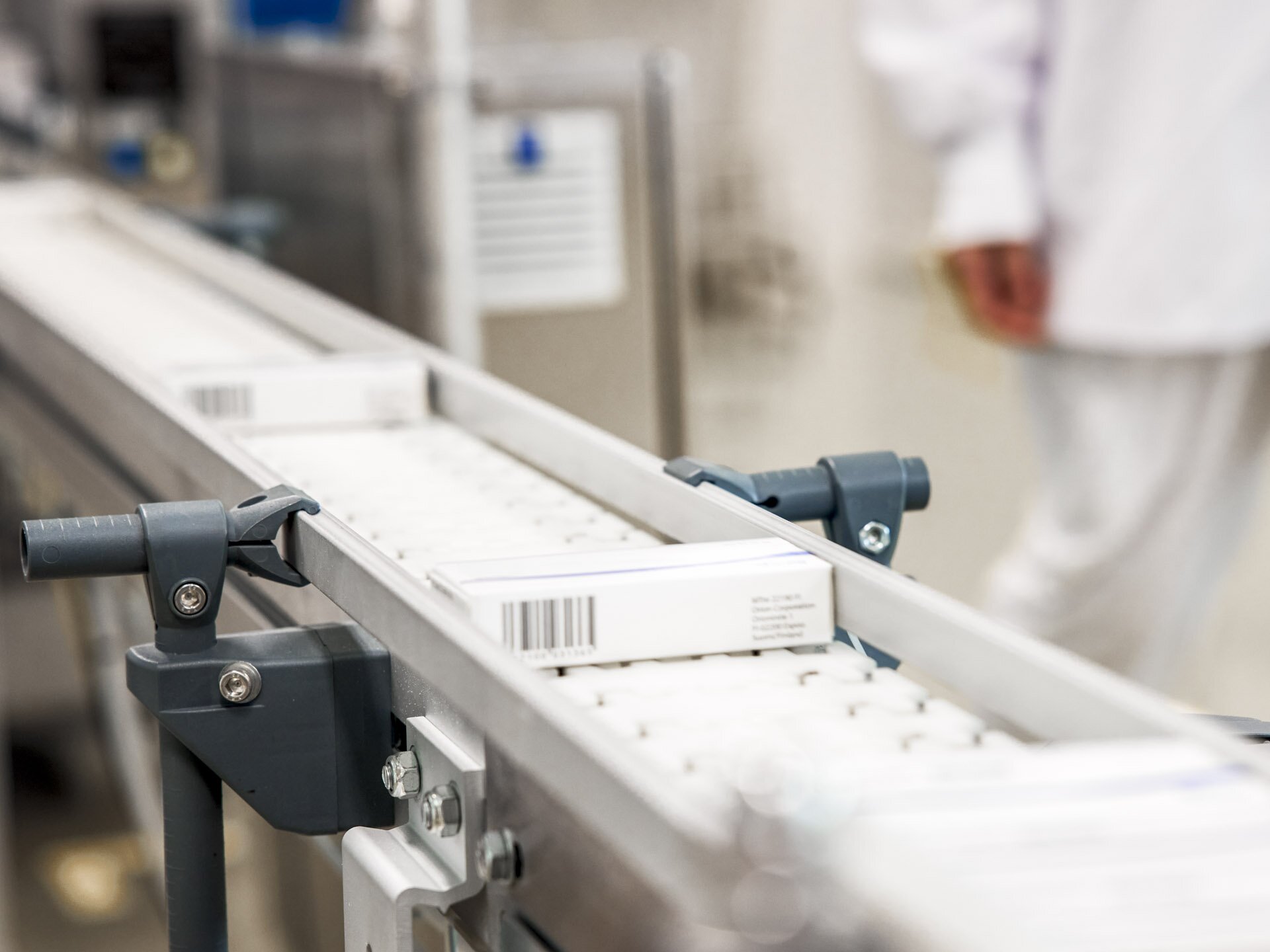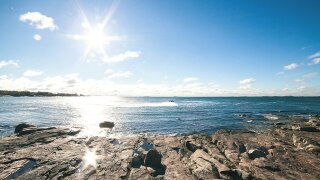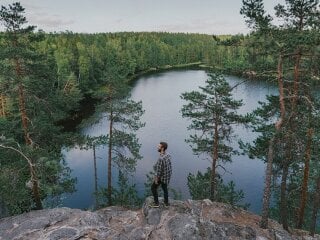But what exactly can the John Nurminen Foundation achieve with Orion’s EUR 50 000 donation?
According to Ulla Rosenström, Director of Marine Environment at the John Nurminen Foundation, with the funding received from business and private donors, the Foundation is able to carry out effective and cost-efficient protection measures. A great example of an effective Baltic Sea protection method is the spreading of gypsum on cultivated fields.
“According to studies, gypsum can significantly reduce the phosphorus and solid load ending up in bodies of water by up to 50 per cent. The effects of one application can last up to five years,” Rosenström says.
Currently, gypsum treatment is in use in mainland Finland as part of the Ministry of the Environment’s Water Protection Programme, but this excludes the Åland Islands. This is why the John Nurminen Foundation launched its own gypsum treatment project in the Åland Islands last year.
“With EUR 50,000, we can cover one year’s logistics costs of spreading gypsum on the fields of the Åland Islands,” Rosenström says.
Liisa Hurme, CEO of Orion, sees it as important that Orion does its part in the protection of the Baltic Sea and the natural environment.
“Our mission is to build well-being, and that includes the well-being of the environment,” Hurme says.
A protection concept exported to other Baltic Sea countries and Southern Europe
The Baltic Sea protection work is a pioneering effort that is globally important, as the environmental consequences of global warming are visible in the Baltic Sea earlier than in other seas. This is due to the unique nature of the Baltic: in terms of salinity, it falls somewhere between a sea and a lake. The Sea is also quite shallow.
With climate change, signs of eutrophication, such as an increase in algal blooms, have recently been observed on the Mediterranean coastline, for example. In the Baltic Sea, work to remedy the consequences of eutrophication have been ongoing for years. Operators in the Baltic Sea are therefore able to share their experience and best practices with other countries.
“We have launched collaborations with French and Italian foundations,” says Ulla Rosenström from the John Nurminen Foundation.
Joining the efforts to save the Baltic Sea in 2018 was a natural choice for the Finnish-based Orion, as it has operations in all the Baltic Sea countries. Orion has operations in some thirty countries worldwide.
“While the Baltic Sea does not stretch all the way to Southern Europe, where we also have operations, it seems like environmental protection is a cause that everyone at Orion wants to support,” Hurme says.
Orion introduced its new, improved environmental targets in February.
What Orion does for the Baltic Sea
- Investments: In 2017, Orion made significant investments in its production to reduce the emission of pharmaceutical residues. The efficiency of Orion’s water treatment system exceeds all legal minimum requirements.
- Campaigns: Together with the John Nurminen Foundation, Orion has participated in the Medicine-Free Baltic campaign and the Mask-Free Sea campaign, which was initiated by Orion.
- Engaging employees in environmental work: Orion employees have collected thousands of buckets of rubbish as part of a team event that has now been organised in two summers.
- Promoting the John Nurminen Foundation: The John Nurminen Foundation has shared Baltic Sea information for years through several Orion events for healthcare professionals.
- Collection campaign for the Baltic Sea: When participating in Orion’s collection campaign in pharmacies, customers can choose to donate a sum to the John Nurminen Foundation towards the protection of the Baltic Sea, instead of receiving a gift product.
Correct disposal of medicines still a challenge
Alongside the prevention of eutrophication and the protection of the marine environment, the John Nurminen Foundation has also named the presence of hazardous substances as one of its focus areas for this year.
Orion replaced the water collection systems in its production plants in 2017, thanks to which the company is now able to eliminate the majority of active pharmaceutical ingredients (APIs) from its wastewater.
“Only two percent of the pharmaceutical residues in bodies of water originate from pharmaceutical manufacturing. The remaining 98 percent comes from the way we use and dispose of medicines,” Hurme says.
Old and unused medicines should never be thrown in the rubbish bin or down the drain. The pharmacy is the right place for them. Orion has campaigned for the correct disposal of medicines for years in collaboration with the John Nurminen Foundation.
The Foundation was also planning a medicine collection campaign for Russia and it has been involved in a wastewater treatment project in Ukraine. The Foundation and Orion hope that these projects can one day be relaunched and completed.
Orion is very happy with its collaboration with the John Nurminen Foundation.
“We have been working with them for some time now, so engaging with such a reliable partner has clearly been very rewarding,” Hurme says, praising the collaboration.
Orion and the John Nurminen Foundation
- Founded in 1992, the mission of the John Nurminen Foundation is to save the Baltic Sea and to preserve its cultural heritage. The Foundation’s projects are funded by private donations and public funding.
- In addition, the Foundation's mission is to communicate about the Baltic Sea and its cultural heritage so that the public may become more familiar with the Sea and pay more attention to its protection.
- Orion is a Finnish pharmaceutical company that operates globally. Orion develops, manufactures and markets human and veterinary pharmaceuticals and active pharmaceutical ingredients. Orion continuously invests in the research and development of drugs and treatment methods.
- Orion became the main partner of the John Nurminen Foundation in 2018. This means an annual monetary donation and close cooperation on campaigns and other initiatives.











